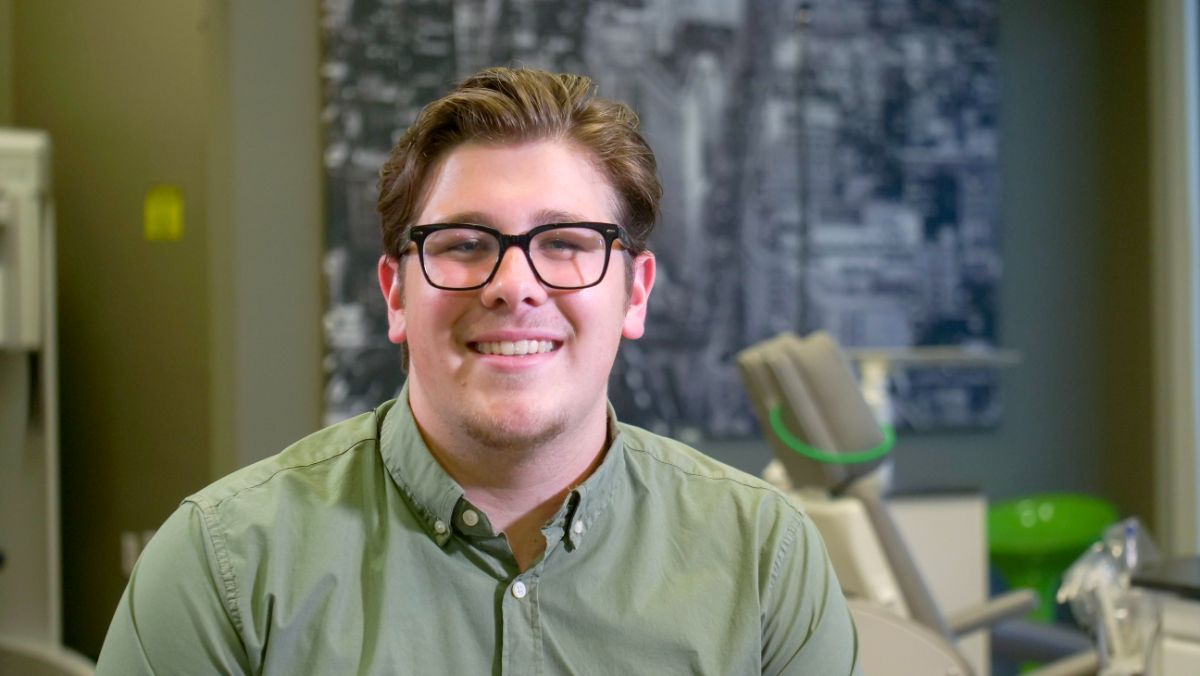Any talk of orthodontics usually carries with it certain images – teenagers in braces is the most common – and that doesn’t often include young children. So it may surprise you to learn that the American Association of Orthodontists recommends a child have their first orthodontic evaluation by or around the age of 7, since they still have baby teeth and their teeth and mouths are still developing. Having an experienced orthodontist examine your child when they’re around this age allows them to pick up on any potential issues early. Catching these issues before they become problematic can help prevent any negative impact on the future permanent teeth.
Here at Krieger Orthodontics, we believe strongly in preventative care. We see many young patients, and it really does make a positive difference to their overall oral health when we can diagnose and treat issues before they become a big deal.
So what kind of issues are we looking for during this evaluation? Let’s take a closer look!
Tooth Loss and Eruption
The transition from baby teeth to permanent teeth is important, including where they’re located and when they fall out, because your child’s primary teeth are placeholders for the permanent ones. Baby teeth will normally fall out in a fairly specific order. If we notice any significant deviation from this pattern, there could be developmental issues that need attention.
By age 7, children should have at least four permanent molars and two to four permanent incisors. If your child has more or less than this, there could be problems with missing, crowding, or extra teeth. Sometimes removing a primary tooth early or maintaining a space where a tooth has been lost prematurely can prevent bigger problems later on.
Crowding and Spacing
It’s possible to tell relatively early in your child’s life if they already have or will have problems with excessive crowding or spacing of their teeth. Spacing issues can show up when a tooth is lost prematurely, where one has never developed, or with teeth that are too small or spaced apart. Crowding can often be treated by expanding the arches or removing teeth.
Misalignment
Teeth can, and often are, successfully aligned at older ages. However, crooked teeth are more susceptible to uneven damage and wear. Going untreated for years can affect the shape and position of the surrounding gum tissue, compromising it. Correcting crooked teeth at an earlier age also has the added benefit of giving your child higher self-esteem and a more positive self-image.
Overbite or Protrusive Front Teeth
Aside from cosmetic concerns, front teeth that are obviously protruding can cause pain in the jaw and possible speech issues. We can’t always permanently correct an overbite until your child’s mouth has finished growing, but we can help reduce the severity of the problem, making things easier for them until that growth is complete.
Underbites
Underbites can be caused by either tooth or jaw problems, with the most difficult scenario being when the lower jaw grows too far forward. With those kinds of cases, we’ll typically need to wait until the patient has finished growing to finish their treatment. This usually will occur by around age 16. Even though there’s a waiting period involved, early treatment is paramount. To avoid bite-shifting and damage to the front teeth, we’ll want to try and normalize the bite as much and as early as possible.
If we notice an underbite in your young child, we can do something called “jump the bite”, using braces or a headgear. This allows us to get a handle on it before completing treatment in their teenage years. Underbite patients who receive early treatment between the ages of about 7 and 10 are much less likely to need jaw surgery at an older age.
Posterior Crossbites
Posterior crossbites can cause crowding, and can also cause the jaw to shift from one side to the other. By expanding the upper jaw between the ages of about 7-10, we can reduce crowding and create the kind of space necessary to allow the front teeth to erupt. Expansion can also eliminate any shifting that may be present due to a constricted upper jaw.
Anterior Open Bites and Deep Bites
These are essentially vertical problems with the bite, and can be spotted by the time your child is around 7 years old. Bites that are too deep (where the top teeth completely cover the bottom ones when biting) can indicate a small lower jaw. Bites that don’t overlap enough (open bites) may be a sign that there is a finger, thumb, or tongue habit causing dental problems. If that’s the case, we’ll work with you and your child to eliminate these destructive habits early on so that normal development can occur.
Why early evaluations equal healthier smiles
As you can see, early orthodontic evaluations are an important part of giving your child the best chance for a straight, healthy, beautiful smile! Delaying orthodontic evaluations until there’s an actual problem can end up costlier, more time consuming, and more painful for your child.
Most children lose all their baby teeth by the time they’re entering their teens, and by the end of those teen years, the jaw bones will harden and stop growing. Any orthodontic procedures performed after this point will often take more time, and can sometimes involve things like tooth extraction or oral surgery. Receiving early orthodontic treatment as a child can help prevent the need for orthodontics as an adult, reducing the need for extractions or surgery in the future.
Although some treatments do require all the permanent teeth being erupted, interceptive treatment like these early orthodontic evaluations can make comprehensive treatment faster and better.
Early orthodontic evaluations in Lewisville
Early evaluations are important, but so is choosing an orthodontist that’s highly trained and experienced. Dr. Krieger spent over twenty years perfecting his skills as a general dentist before diving into orthodontics. That means that as a patient of Krieger Orthodontics, your child will be getting the best of both worlds where their smile is concerned!
Our skilled staff are also committed to working with you and your family to create a comfortable and stress-free experience with each visit to our office.
If you’re in the Lewisville or surrounding area, and have a child around 7 years old, get in touch with our team today to schedule a complimentary consultation. We would love to help you and your child find their very best smile!




